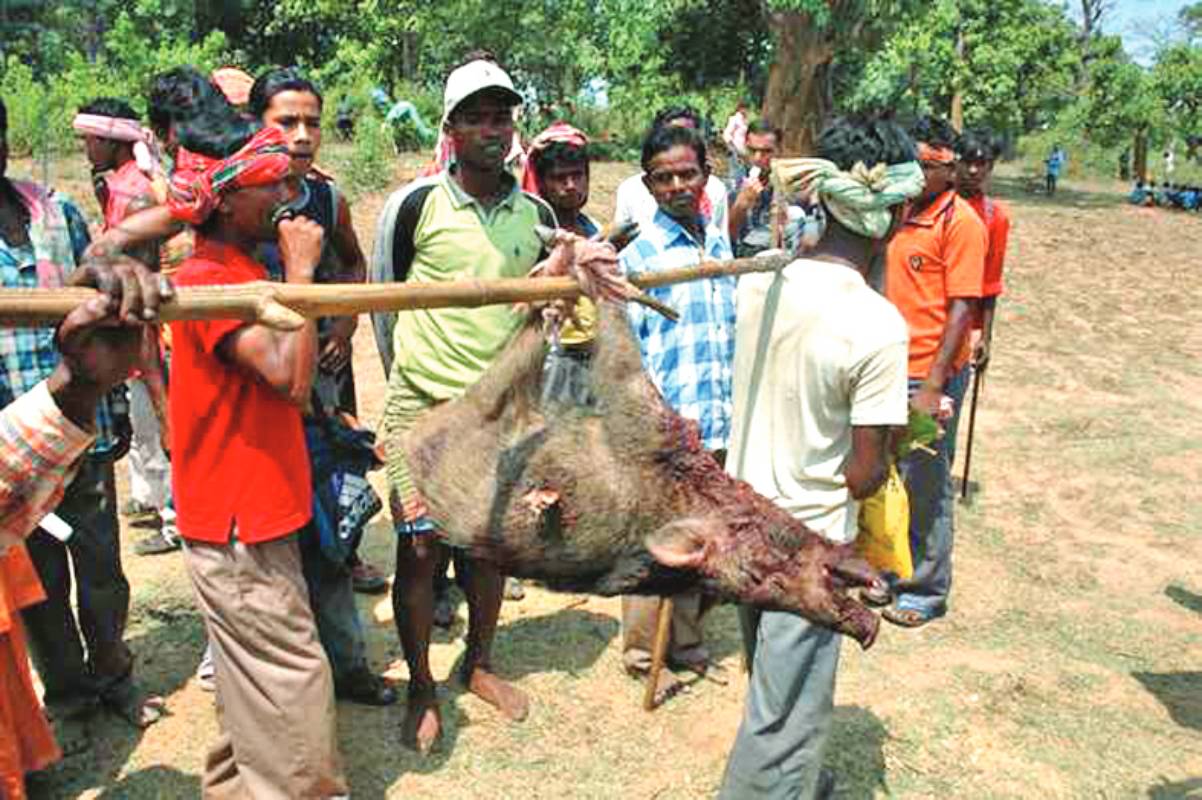CM Mamata in Bankura on 3-day Junglemahal visit
Chief minister Mamata Banerjee today left for Junglemahal on a three-day tour
Several hundreds of tribal hunters from all over the country are expected to come to Ayodhya Hills this year for the ‘shikar utsav’.

It has been decided that besides creating social awareness through the cultural affairs department, the forest department has also planned to start naka-checking at all entry points to Ayodhya Hills on the wake of the hunting festival in Purulia on 16 May or Buddha Purnima night.
Several hundreds of tribal hunters from all over the country are expected to come to Ayodhya Hills this year for the ‘shikar utsav’. Since the past two years, due to the Covid-19 pandemic, the hunting festival could not take place during Buddha Purnima night in Ayodhya Hills.
A high-level meeting took place in which chief conservator of forests (south-west circle), Manasa Ranjan Bhatta, DFO of Purulia Division Debashish Sharma etc were present.
Advertisement
The DFO of Purulia told The Statesman that the forest department will not allow the entry of the tribal people to the Hills with any arms. He said arms will be seized, if found.
“Since 15 May morning, hunters will try to enter the forests through Urma, Barabhum and Kantadih areas. The forest guards will be deployed for frisking and without permission nobody will be allowed to enter. Besides, we have also planned several cultural programmes and the Ayodhya Hills to distract the focus of the hunters,” the DFO added.
The cultural functions will take place at Ghatbera, Khamar and Sirkabad. The biggest challenge for the forest department is to stop illegal poaching of several wild animals during the Buddha Purnima night.
The help of folk artists have been taken for spreading awareness against illegal poaching of animals in places like Ayodhya, Matha, Jhalda, Balarampur, Kotshila, Arsha forest ranges.
“Through wall graffiti, public announcements, leaflets we are creating awareness. The folk artists are moving with dhak in the tribal-infested villages spreading the awareness of the importance of protecting the wildlife,” he added.
There are about 30 wild elephants roaming with three different herds in Purulia. The forest department is worried about any disturbances in the elephant corridor of Purulia.
According to the World Wildlife Fund (WWF) over 3,000 animals have been killed in the 500 square feet green patches of Ayodhya Hills in the past two decades. The WWF passed restrictions on the hunting festivals in 1999 as most of the animals are endangered and rare species. But despite the ban on the hunting festival by the state forest department, tribal people continue to poach wild animals during Buddha Purnima night.
The tribals not only arrive from different parts of the state but also from other states like Jharkhand, Chhattisgarh, Odisha and Madhya Pradesh by train.
Bear, spotted deer, barking deer, wild boar, hyenas, wolves, pangolins, elephants, leopards, pythons, cobras, peacocks, monkeys, porcupines, turtles, rabbits, wild hen, jackal etc were found in the forests of Ayodhya Hills. Pangolins or the scaly anteaters are found only in the mountains of Himalayan range and in Purulia. Pangolins are marked as endangered species by the WWF.
Advertisement